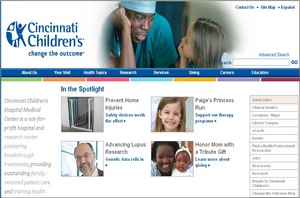Family Problem-Solving

- Description:
Family Problem Solving (FPS) uses self-guided web pages and videoconferencing with a therapist to address cognitive appraisals, coping, and family communication. The FPS homepage features links to announcements, contact information, resources (other brain injury Web sites), and session materials. Participants are able to access assigned web site content that is assigned by a therapist or coach after previous sessions have been completed. The FPS web site has 12 separate sessions, with eight core sessions addressing problem solving, communication, and TBI-specific behavior management skills, and four sessions addressing content related to the unique stressors and burdens of individual families. Families are asked to respond, both as individuals and as a group, to questions, exercises, and problems by entering their responses to queries on the Web site. Families received corrective feedback regarding on-line exercises and assignments through the Web pages, and these exercises are stored for future reference. The program also includes on-line appointments with a therapist to answer questions, and review the exercises/worksheets.
- Service URL:
- http://www.cincinnatichildrens.org/
- Agency Responsible:
- Cincinnati Children's Hospital Medical Center, funded by National Institute on Disability and Rehabilitation Research.
Details
- Format:
- Website.
- Intervention Type:
- Psychological - Problem solving.
- Course Length:
- Long (more than 5 modules).
- Support Option:
- Clinical support. Provided through online meetings with a therapist via video conference
Target Audience
- Primary Category:
- Traumatic brain injury.
- Target Audiences:
- Child and Families.
- Language:
- English.
Access
- Fee:
- Free.
- Access:
- Closed: Email administrator.
- Contact Details:
Research evidence
- Research Trials:
- 5
- Research RCTs:
- 1
- Outcome Summary:
A number of studies have evaluated the FPS program. In a randomised controlled trial comparing FPS and Internet-based TBI information with a control group only with Internet-based TBI information, the FPS group reported better child self-management/compliance at follow-up than did the IRC group. In another randomised (but not controlled) trial, the FPS group reported significantly less global distress, depressive symptoms, and anxiety at follow-up than did the IRC group after controlling for baseline symptoms. The FPS group also reported significant improvements in problem-solving skills, although the groups did not differ significantly at follow-up. Results from non-controlled studies found that families rated the website and videoconferencing as moderately to very easy to use, very helpful and reported high overall satisfaction. Families showed increased understanding of traumatic brain injury and improved parent-child relationships. Parents reported improvements in antisocial behaviors, and children with TBI reported reductions in conflict with parents regarding school. Significant improvements were found in injury-related burden, parental psychiatric symptoms, depression, and parenting stress. There were also significant reductions in antisocial behaviors in the injured child, but not in self-reported depressive symptoms.
- Recommended rating, reviewer 1:

- Recommended rating, reviewer 2:

Read more about Beacon's Smiley Rating System.
Research paper citations
- Wade, S. L., Wolfe, C. R., & Pestian, J. P. (2004). A Web-based family problem-solving intervention for families of children with traumatic brain injury. Behavior Research Methods Instruments & Computers, 36, 261-269.
- Wade, S. L., Wolfe, C. R., Maines Brown, T. & Pestian, J. P. (2005a). Can a Web-based family problem-solving intervention work for children with traumatic brain injury? Rehabilitation Psychology, 50, 337–345.
- Wade, S. L., Wolfe, C., Brown, T. M., & Pestian, J. P. (2005b). Putting the pieces together: Preliminary efficacy of a web-based family intervention for children with traumatic brain injury. Journal of Pediatric Psychology, 30, 437-442.
- Wade, S. L., Carey, J., & Wolfe, C. R. (2006a). The efficacy of an online cognitive–behavioral family intervention in improving child behavior and social competence following pediatric brain injury. Rehabilitation Psychology, 51, 179-189.
- Wade S. L., Carey, J., & Wolfe, C. R. (2006b). An online family intervention to reduce parental distress following pediatric brain injury. Journal of Consulting and Clinical Psychology, 74, 445-454.
User ratings
User ratings and comments are moderated in order to assure the quality of the submissions. It might take a week for your rating to show up.
Your rating
Login to rate this service.
Other user ratings
No ratings for this service yet.
Last Updated: April 27th 2011

 Home
Home
 Categories
Categories Traumatic brain injury
Traumatic brain injury